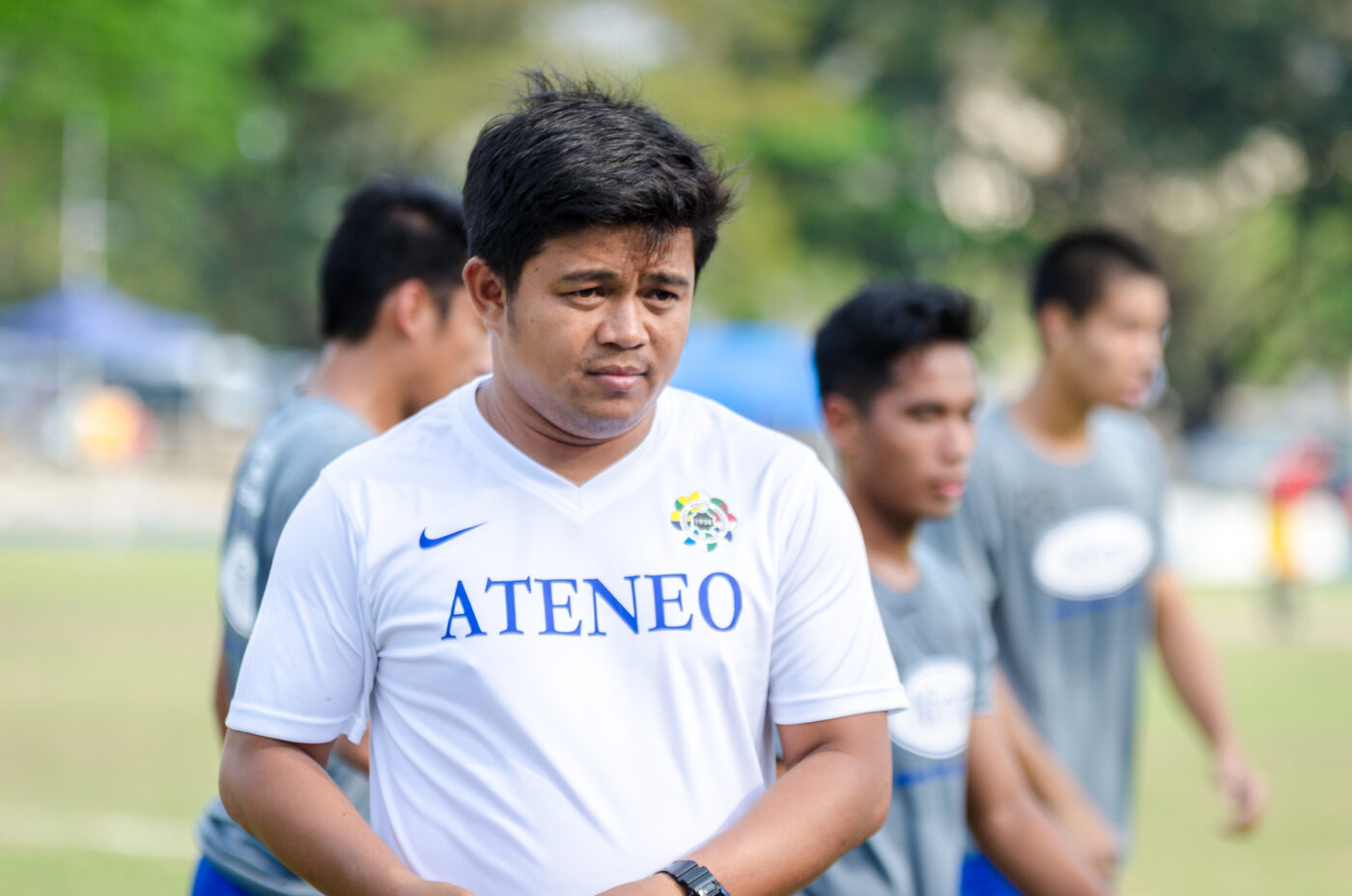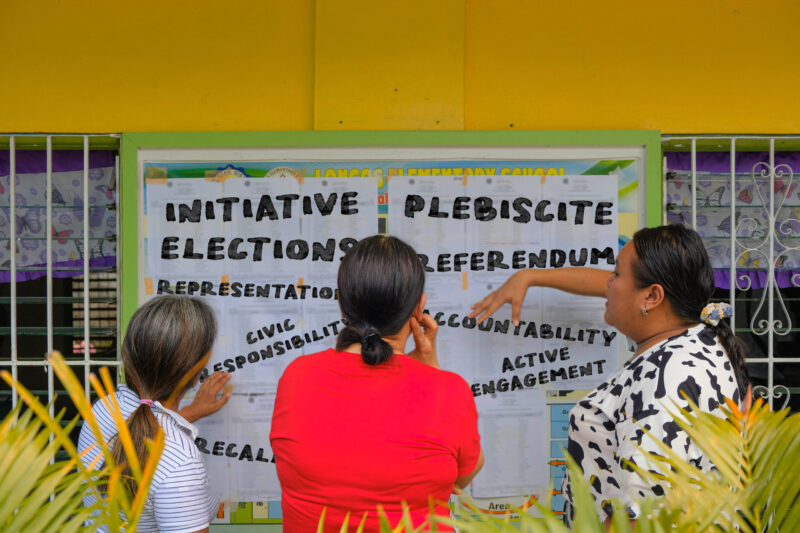ATENEO FOOTBALL is in Jay Pee Merida’s blood. His presence in the Ateneo Football system over the years has been constant and present in various capacities. As a player, he was part the Ateneo Men’s Football Team that memorably won three straight titles from 2003 to 2006, a record that still stands up to this day. He has also coached different levels in the Loyola Schools, including in the grade school and high school, and is currently serving as head coach of the men’s team that he has also led a championship years back. Recently, he has taken a new and different opportunity, one that he has never done in his long football career.
Last year back in June, Merida took over as the head coach of the Ateneo Women’s Football Team (AWFT). Initially, he was not supposed to handle the team due to his existing commitment to the men’s squad. He was only tapped for the job after the athletics department recommended him.
“Sinabi ko nga sa kanila na ‘Hanap muna kayo [ng ibang coach]. Pag wala na talaga, ako nalang magtatake over,’” (I told them to look for other coaches first. If there weren’t any, I will take over) Merida recounts.
When respect goes both ways
Nine months since he assumed the lead managing role, the move has paid dividends for the Women’s Football team both on and off the field. The Lady Eagles started the Season 79 of the University Athletics Association of the Philippines (UAAP) with back-to-back wins, before losing their match against powerhouse team, La Salle. The reason behind the quick start despite the team having a whole new coaching staff goes beyond the usual football tactics.
“The main reason that results are showing is that Coach Jay Pee generates respect from players, because he also gives respect to us,” explains Team Captain Cam Rodriguez. “We are more receptive and his ideas are more easily absorbed by us players.”
His father-like presence on the team has given a substantial effect on the team’s morale. In the past, players used to play or train out of fear, but now they enjoy going to practices because of the positive learning environment that Merida facilitates. His focus on growth and performance over results is one reason why the team has been very receptive to him.
“Instead of getting mad or making us feel bad about a bad game—case and point 6-0 versus La Salle back in December—he always focuses and redirects it to just learning from the loss,” Rodriguez adds.
His professionalism as a coach has also been lauded by the team captain. He can be playful with the team—as he sometimes takes part in small-sided games with them—but also keeps the right distance from them.
Adjusting and balancing
His extensive coaching experience helps with this ability to present himself as a coach. He has learned the tricks of the trade from being a football instructor for over 10 years and counting, but his experience of coaching women before taking over the AWFT was non-existent. He had to adjust his approach a bit, as some techniques are not as effective as others with regards to gender.
Merida states that there are many differences in coaching women. For instance, he says that it is not effective to get mad or embarrass a player in front of her teammates. He found though that they are more responsive to his instructions.
“Sa men’s team kasi parang nagbigay ka ng instructions, susundin ka pero i-chachallenge muna nila. Sa women’s team, ito yung pinakamaganda sa kanila, kung nagbigay ka ng game plan or information, talagang sinusunod nila (In the men’s team, if I would give out instructions, they would follow it but they would challenge it first. In the women’s team, and this is the best thing about them, if I would give them game plan or information, they would really follow it.),” Merida explains.
This is not to say that Merida’s style of coaching is vastly different toward the women’s team. Rodriguez says that there are times that he gets frustrated and shouts at the, which is no different from the way he deals with the men’s team.
The most difficult aspect of all of this is balancing the two squads. It is extremely tough coaching one UAAP team, let alone two. Merida deals with this by forgetting about football once he gets home, which helps him avoid the stress. But for him, it is all worth it at the end.
“Proud lang talaga ako na naniniwala sila na kaya ko, (I am just proud that they believe that I can do it),” says Merida about Ateneo’s trust in his capability to coach both team simultaneously. “Sana gumanda pa rin yung kasi gusto ko rin ibalik sa kanila yung tiwala na binigay nila sa akin. (I am hoping that my performance gets better because I want to return the trust they gave to me).”
Merida has brought success to the Blue and White in years past, making it easy to see why he was trusted with such a high-pressure job of handling both college UAAP football teams. With his history with Ateneo Football, it is safe to say that the Ateneo Women’s Football Team is in good hands.







